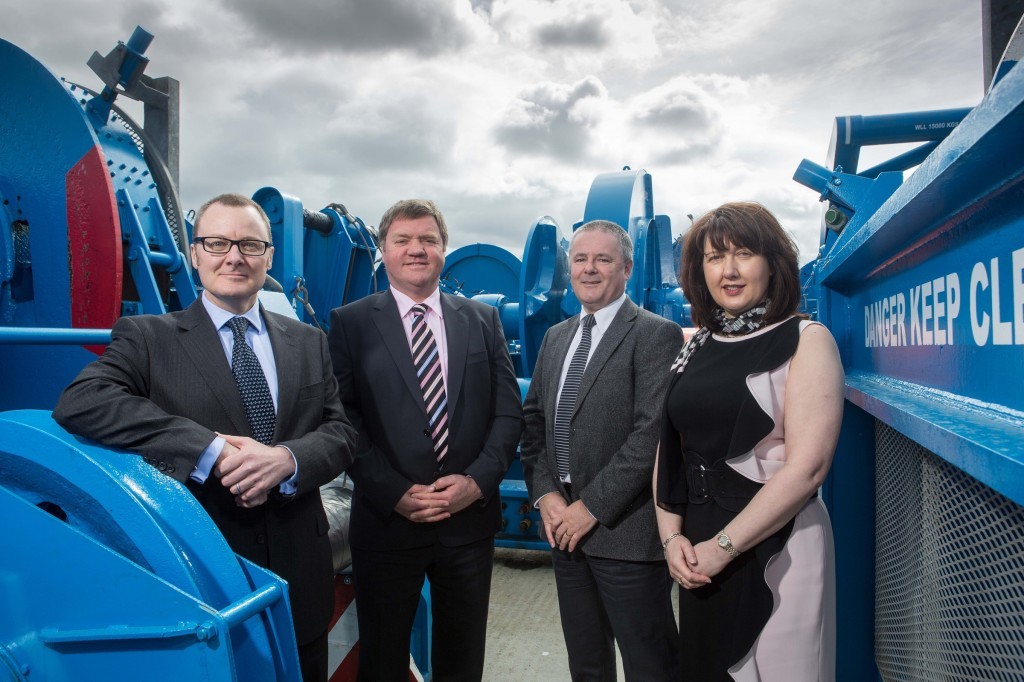
North-east businessman Alfie Cheyne says he has no intention of giving up life at the helm of fast-growing Ace Winches anytime soon.
Mr Cheyne, who turned 50 earlier this year, said he was “a young boy yet” and still enjoyed the day-to-day challenges of running the engineering business he and his wife, Valerie, launched 21 years ago.
He was speaking as Ace – based at Towie Barclay Works, near Turriff – reported a 14% jump in turnover, to £35.4million during the year to October 31, 2013.
Mr Cheyne said the company was on track for sales worth nearly £50million this year, while the annual total would “easily” surpass £70million by 2016.
The firm continued to benefit from growth in its main markets as well as new orders for its machinery and services from customers globally, he added.
About three-quarters of Ace’s total turnover is generated overseas, with the export mix recently changing to reflect growth in the Middle East, Caspian and Asia Pacific regions.
Pre-tax profits for 2012/13 totalled £6.7million, down from £7.4million the year before, and Ace said earnings before interest, tax and depreciation fell by 2% to £9.1million.
But the firm highlighted hefty investment in its people and assets during the period, including on skills training to help Ace “further develop its global market position”.
Much of the recent capital investment, such as an expansion of facilities run by Norwegian subsidiary Ace Winches Norge has been aimed at securing more international business.
The firm has also spent £2.7million on upgrading its hire fleet and £1.7million on developing its 24-acre campus at Towie Barclay Works to make way for future expansion.
Its workforce has mushroomed to more than 360 people, from just 200 about three years ago, thanks to growing demand from the global energy industry for its manufactured winches and marine deck machinery.
A strong export performance in recent years has earned both it and Mr Cheyne a string of prestigious honours.
Ace has twice won the Queen’s Award for international trade, with the second presented during a visit by the Princess Royal last year.
You might expect the company’s growing reputation to attract suitors, but Mr Cheyne said he had received no offers for the business.
He also said he had no plans to retire early and would be running Ace for years to come.
The company had a bright future and was ready to expand through acquisition if the right opportunity arose, he added.
He said Ace’s success was built on a “track record of delivery and long-term relationships” – an approach the company would continue to follow.
“Growth provides Ace with an ability to invest in our people as well as the local and wider communities in which we operate,” he added.
The firm increased its intake of modern apprentices in 2012/13 and by the year-end had 55 employed on a four-year programme covering technical, craft and business administration skills.
“We also had nine graduates undergoing the Ace graduate engineering scheme and a further 11 engaged in a trainee programme,” Mr Cheyne said.
Ace was founded n 1993 as a small engineering repair workshop to carry out servicing and repairs for the Scottish fishing fleet.
The firm grew quickly; it had 10 employees within 18 months and made a breakthrough into the manufacture of deck machinery, with a winch built for the Scottish Fisheries Marine Laboratory vessel Scotia.
Decline in the Scottish fishing industry since 2000 prompted a change in strategic direction into new markets such as oil and gas, offshore marine and – more recently – renewables.
Recommended for you
